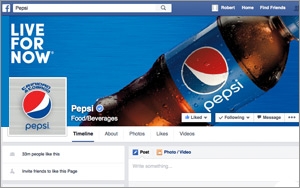Commentary
Should Advertisers Use Paid Search To Promote Facebook Brand Pages?
- by Laurie Sullivan , Staff Writer @lauriesullivan, July 30, 2015
 Running paid-search campaigns in Google AdWords to promote Facebook posts can be a painless way to begin integrating search into social campaigns, but the key is assuring that the
content remains relevant, answers a question, or fulfills a brand fan's need, according to one expert.
Running paid-search campaigns in Google AdWords to promote Facebook posts can be a painless way to begin integrating search into social campaigns, but the key is assuring that the
content remains relevant, answers a question, or fulfills a brand fan's need, according to one expert.
It allows marketers to "double dip," according to Megan Demarais, SEM account manager at aimClear -- using demographic information from social in search by tagging the site with social retargeting pixels, then remarketing it into search when a user shows intent. Marketers can also take intent-driven searches and market longer-term into social campaigns.
Should brand marketers or YouTube celebrities use paid-search campaigns to promote content in YouTube or Facebook? This question came about after asking aimClear whether advertisers were missing an opportunity by not using paid-search campaigns to advertise YouTube or Facebook content.
Promoting Facebook brand pages with Google AdWords seems like a good idea, but there are a few important details to consider, Demarais said. She tested and confirmed that Google AdWords still allows marketers to build paid-search campaigns, pointing at a company Facebook page. Facebook promotion through AdWords threads the needle between search and social, offers businesses opportunities, and "allows marketers to parlay search intent into social," she said.
Advertisers, however, may pay a premium, per Demarais. Sending traffic to a Facebook landing page serves visitors to a less relevant experience than a search-specific landing page, driving quality scores down and cost per click (CPC) up.
Non-Facebook users -- which do exist, she says -- are unable to view the content or page within Facebook's walled garden, and instead will be sent to a page encouraging them to create a Facebook account. This could deter some, which raises the CPC and drives down the quality score.
It's also a trademark violation to use Facebook in ad copy, but the URL is fine, and not all AdWords features are available for use conversion tracking, according to Demarais.
So advertisers can promote Facebook pages posts through AdWords, but whether or not it's a good idea depends on the company's or brand's business goals. Demarais suggests using AdWords ad extensions to drive traffic to different social accounts, assuming they are frequently updated or contain new content.
As for the quality score, does the Google quality score fall because the link lead the user into a walled garden -- Facebook?
Google's quality score depends on multiple factors, including click-through rate, relevance of each keyword to its corresponding search, and landing page quality and relevance, Demarais said.
"Google also could prevent multiple ads using the same top-level domain from appearing on the same search results page," she said. "This means if another
advertiser is driving traffic to Facebook and bidding on the same keywords as yours, only one ad might show, the ad with the highest 'ad rank.'"
Demarais said that in this example, the ad
sends a user to a Facebook page or post, who originally went to Google to get an answer. So unless the post or page satisfies the query, it will ultimately be a less relevant user experience than
sending someone to a search-oriented landing page.
"It also would be difficult to believe Google's algo would weight a Facebook post experience the same/higher as a landing page from
domain within the account," Demarais said.




so, no.
Is it worth the risk? I guess some brands may be able to test and make quick decsions on the affects to quality score or bids.